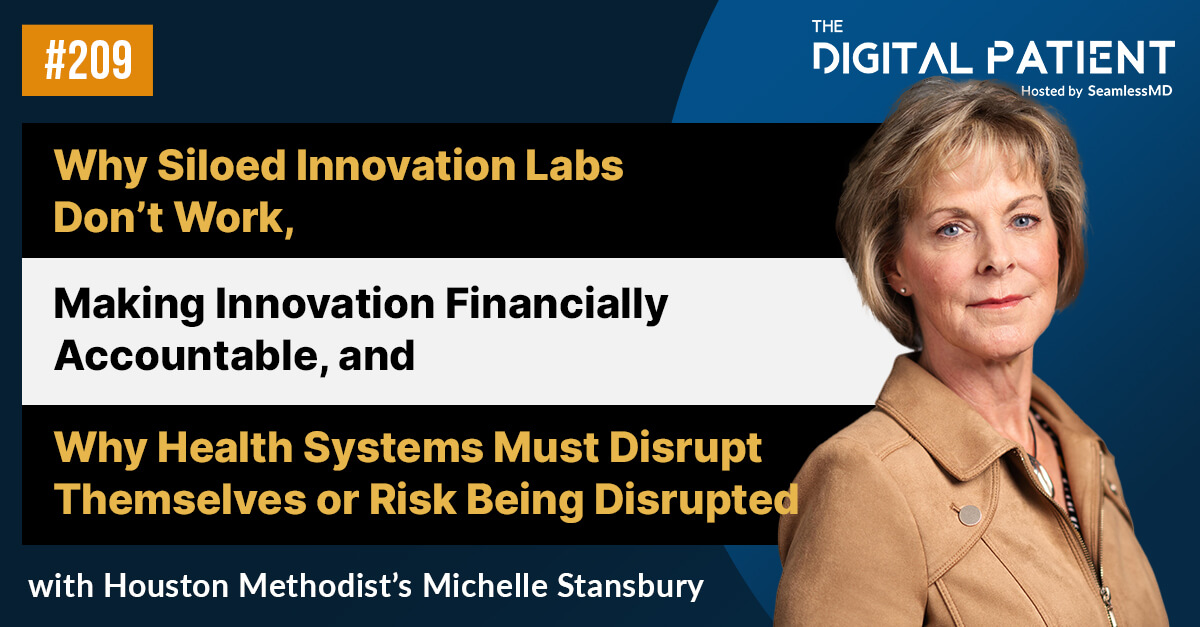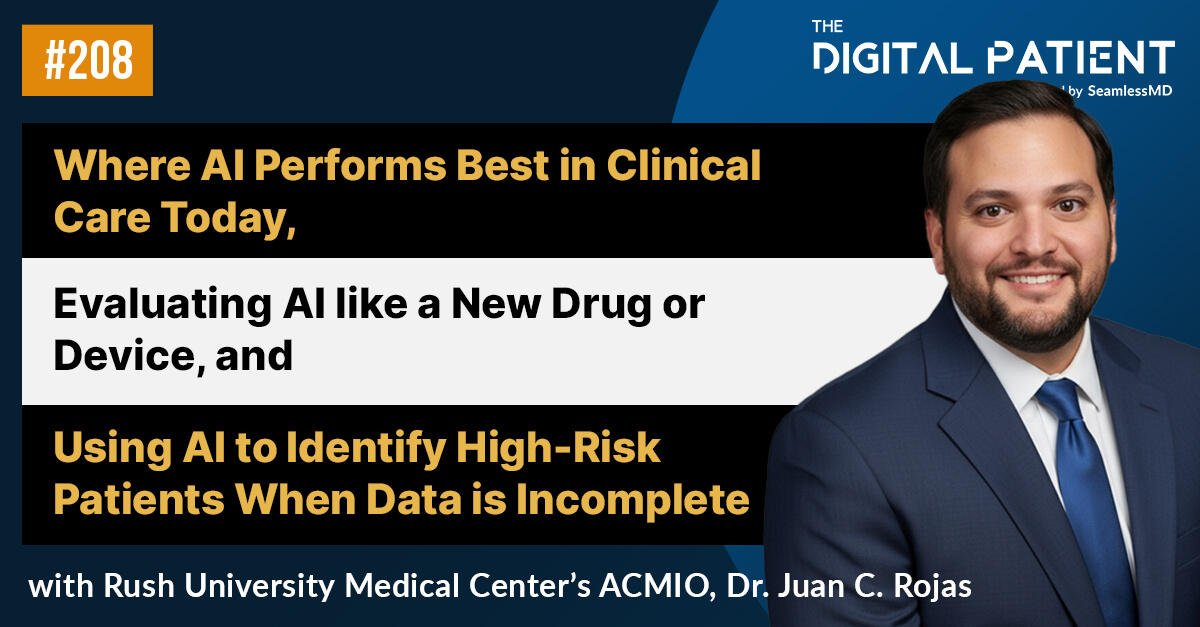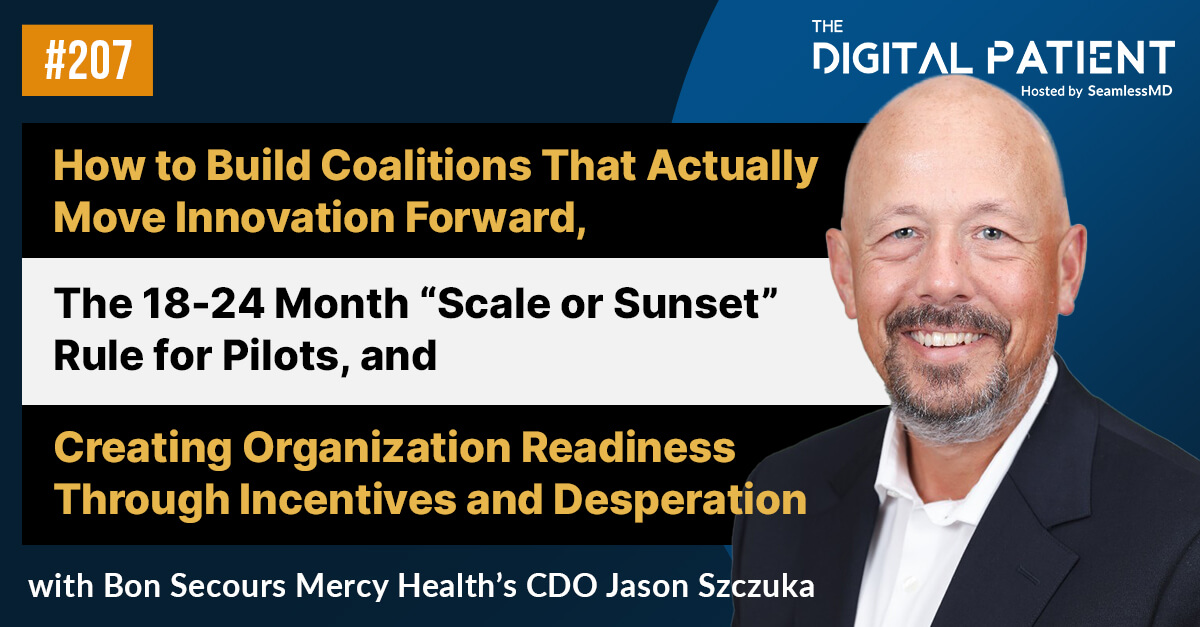On November 10-12, 2022, Enhanced Recovery After Surgery (ERAS) leaders, advocates and practitioners gathered in Washington DC for the 5th Annual Congress of the ERAS® USA Society.
If you were unable to make it, we’ve got you covered! Today we share our five big takeaways from ERAS USA’s 2022 Annual Congress:
- ERAS can be scaled across a health system faster than you think
- Digital Patient Engagement and Remote Monitoring take ERAS to the next level
- Auditing protocol compliance is critical for maximizing value of an ERAS program
- More support for Nurses and Advanced Practice Providers (APPs) is needed to ensure success of ERAS
- Innovative strategies can successfully secure Executive Buy-in for ERAS
1. ERAS can be scaled across a health system faster than you think
University Hospitals (UH) was a major player at the 2022 ERAS USA conference. Firstly, by getting certified as a Qualifying Center for Enhanced Recovery After Surgery (ERAS) in colorectal surgery - a huge milestone that less than 10 centers in the United States have achieved - congrats to our friends at UH!
Secondly, UH was highly engaged, delivering both the Day 2 keynote and multiple presentations on their success scaling ERAS to 14 pathways across 10 hospitals in just two years!
How did they achieve this so quickly? Here are eight key lessons learned shared by Dr. Heather McFarland, Co-Lead of ERAS and Vice Chair of Clinical Operations at UH:
- Belief and affirmations are key to building a “zero harm” culture in your organization. For example, coaching staff to speak affirmations such as “I will start believing I play a critical party in the safety, well-being and health of all those we serve”
- Leadership means inspiring employees. Sometimes our teams feel like they are stuck in jars, and we have to remove the lids to enable our teams to jump out!
- Consider using a fractal-based quality management approach to implement your ERAS program
- Have clear goals and infrastructure for quality improvement: KPIs, clinical practice guidelines, multi-stakeholder engagement, executive engagement, and playbooks
- Have a designated ERAS Coordinator and Data Analyst to get the most out of ERAS
- Engaging patients and families with ERAS is even more critical right now when providers face resource constraints
- To explain prehab to patients, use the analogy of training for a marathon. You wouldn’t not train for a marathon, right? We should view surgery in the same way
- Use simple infograms / infographics to standardize staff education on ERAS

UH has a particularly strong Cardiac ERAS program, and its Chief of Cardiac Surgery, Dr. Marc Pelletier, recently shared how his program uses a Digital Patient Engagement platform to increase ERAS compliance and reduce readmissions. Click here to watch Dr. Pelletier’s presentation on the topic.
2. Digital Patient Engagement and Remote Monitoring take ERAS to the next level
Dr. Michael Scott, ERAS USA President, made the bold argument that ERAS is now core to delivering surgery in the post-COVID-19 era. Dr. Scott particularly highlighted the importance of patient engagement for ERAS, saying: “ERAS is even more relevant since the pandemic… patients want to be more active partners in patient care too!”
Now what happens if you take a highly successful ERAS program and supercharge it with Digital Patient Engagement technology?
Three separate examples were highlighted to answer this question…
(1) Dr. Ansley Ricker from Atrium Health answered that question in her presentation on Long-term Results from Prospectively Collected Patient-Reported Outcomes Using Mobile Health Technology in Hepatopancreatobiliary Surgery. Atrium Health is a leader in ERAS, having been the 1st designated ERAS® Society accredited Center of Excellence in the United States.
In her presentation, Dr. Ricker shared how Atrium Health partnered with SeamlessMD to provide an Epic-integrated Digital Patient Engagement platform on smartphones, tablets and computers that guided patients pre and post-surgery with ERAS reminders, education, Patient-Reported Outcome (PRO) data collection and symptom monitoring. By adding Digital Patient Engagement capabilities to their already successful Hepatobiliary ERAS program, Atrium Health was able to achieve:
- ↓89% 30-day mortality (p = 0.011)
- ↓64% 90-day mortality (p = 0.010)
- ↓24.1% length of stay (p=0.001)
To learn more about how Atrium Health uses this Digital Patient Engagement technology to achieve these outcomes, check out a recent webinar led by Misty Eller, an ERAS nurse leader at Atrium Health.
(2) As part of his ERAS Gynecology update, Dr. Gregg Nelson, ERAS Surgeon Lead for Alberta Health Services, shared research he conducted on digital collection of Patient-Reported Outcomes and Post-Discharge Remote Monitoring (e.g. wound photo monitoring). Results showed increased patient-reported scores on the Quality-of-Record (QoR) validated survey tool.

(3) Dr. Gita Mody, Director of Thoracic Surgical Oncology at UNC, presented on “Monitoring ERAS patients post-discharge”. Key ideas from Dr. Mody were:
- Remote Patient Monitoring allows ERAS programs to shift from “reactive” to “proactive care”
- Validated symptom definitions can be used to accelerate the development of remote symptom monitoring surveys (e.g. using the PRO-CTCAE symptom item library for cancer monitoring)
- A UNC outcomes analysis has found remote patient monitoring to reduce 30-day complications and readmissions
3. Auditing protocol compliance is critical for maximizing value of an ERAS program
Dr. Olle Ljungqvist, who co-founded the ERAS Society, explored how despite many organizations saying they do “ERAS”, the outcomes can be wildly different. For example, in his home country of Sweden where ERAS is supposedly the standard of care, surgical complication rates can vary 3x between the highest and lowest performing organization! Dr. Ljungqvist passionately argued that measuring and improving ERAS compliance (i.e. “audit”) is the critical difference between successful and unsuccessful ERAS programs.
So why is auditing ERAS compliance so important? Allyson Cochran, Senior Clinical Data Manager for Atrium Health, explained why ERAS compliance data drives everything:
- Data gets stakeholders onboard with ERAS: Grab attention by sharing data on performance
- Data adds value to ERAS team meetings: Gets discussions focused on what matters - compliance and outcomes
- Data communicates success: Raises awareness and increases buy-in internally and externally
- Data supports academics: Enables research and quality improvement opportunities (side note: The RECovER Checklist is a great starting point for what ERAS info to report on in journal publications)
Dr. Kevin Elias, President-Elect of ERAS USA, agreed and shared how his organization Brigham and Women’s Hospital uses “Surgeon Report Cards” to benchmark ERAS compliance data and outcomes between surgeons. Surgeons are inherently competitive, and ERAS report cards leverage that internal drive for excellence to drive better patient outcomes!

4. More support for Nurses and Advanced Practice Providers (APPs) is needed to ensure success of ERAS
Misty Eller, Advanced Nurse Practitioner and ERAS nurse leader at Atrium Health, presented on Rapid Fire: APP & Nursing, sharing how our healthcare system is increasingly dependent on the APP workforce to deliver best-practice care models such as ERAS. In today’s challenging climate with a 70% decrease in employed nurses since 2021, Misty discussed how there’s a need to improve APP and nursing experience and satisfaction to better support the needs of health systems and patients.
However, key barriers to nurse and APP involvement with ERAS include lack of online education, monetary support and certification opportunities. To encourage more nursing and APP involvement in ERAS, Misty proposed that we need to provide more certification, scholarship, abstract contests, and research opportunities.
Supporting nurses and APP involvement with ERAS is critical to the success of this interprofessional model long-term - we certainly must find a way to do more!
5. Innovative strategies can secure Executive Buy-in for ERAS
Many providers realize ERAS is better for patient outcomes, but where do you start? In particular, how do you get executives bought-in?
Charlette Harte, Sr. Quality Process Improvement Consultant for ERAS, Baylor Scott & White Health, knows a thing or two about ERAS. She’s led the rollout of ERAS across a 51 hospital system!
In her presentation on Executive Engagement for ERAS, Charlotte shared four innovative strategies to get buy-in:
- Host internal annual ERAS conference (click here to see Baylor Scott & White’s annual ERAS symposium as an example)
- Create ERAS scorecards and benchmarks between clinicians and hospitals to encourage healthy competition
- Submit ERAS projects for health system awards
- Record and share internal podcasts about your ERAS success
Doing all of these might seem daunting, however even just picking one of these to try next year is an excellent way to keep moving your ERAS program forward. Give them a shot!
Looking ahead to ERAS in 2023
ERAS is bigger than ever before and it won’t be long before it is truly the standard of care in North America. With the right technology and change management strategies, health systems can leverage ERAS to be a strategic tool to improve quality and patient safety, while also keeping staff satisfaction high.
Interested in further exploring how digital patient engagement can amplify ERAS Success, download our white paper to learn how you can leverage technology to deliver standardized ERAS patient education, improve patient compliance, decrease opioid use, and reduce high cost services like readmissions, length of stay and ED visits.
.svg)










.png)
